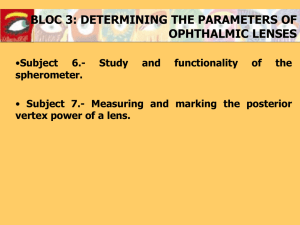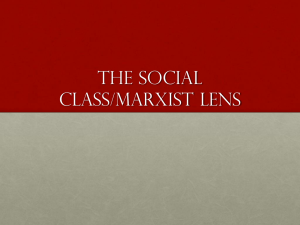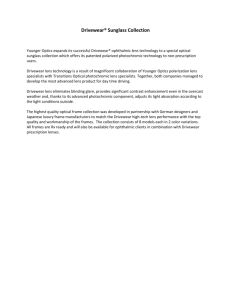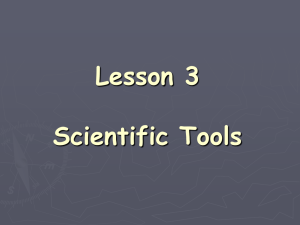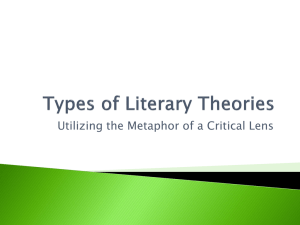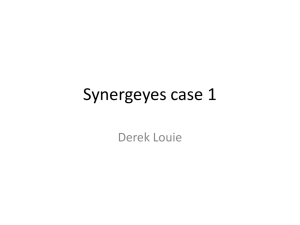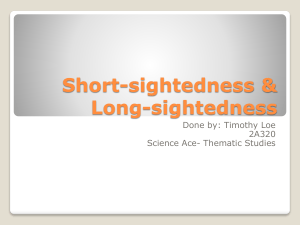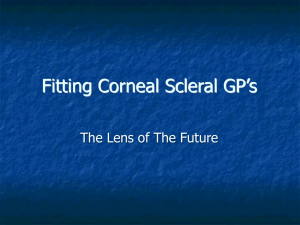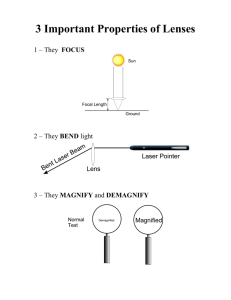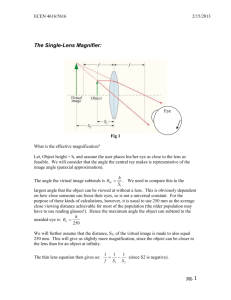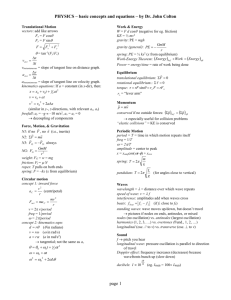Telescope - how it works
advertisement
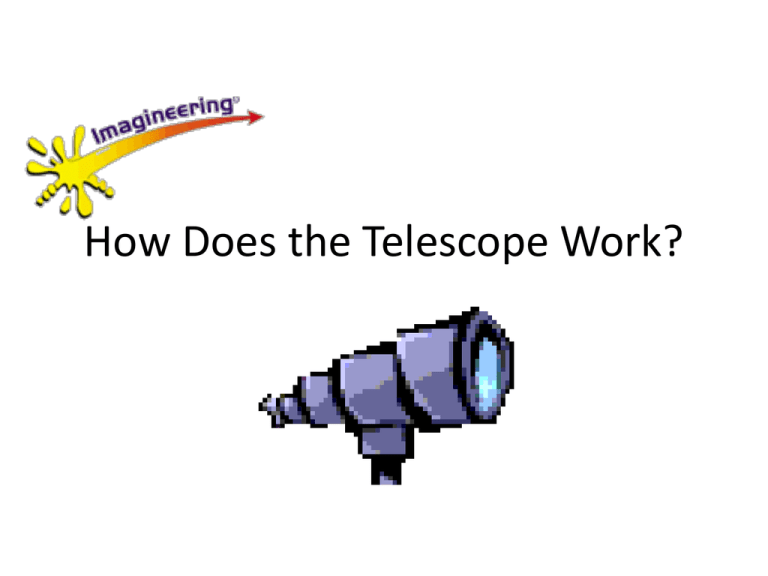
How Does the Telescope Work? First, remember these things … • Beams of light normally travel in straight lines, – But they bend when moving from one material to another – e.g. from air into glass. • Your eye and brain are fooled when light bends: they think it has travelled in a straight line. Sticks seem to bend in water … … But the eye thinks the light has travelled in a straight line, so the end of the stick appears to be here! Stick Air Water Light from the end of the stick bends as it leaves the water … Simple Magnifier. This is called a convex lens … Again, the eye thinks light has travelled in a straight line, so sees a bigger image Light beams from a small object close to the lens bend like this as they pass through the lens… Same lens, different effect … The result is a real image that can be seen on a screen – by everyone! This time, light rays from a distant object bend like this – and meet at a single point … Another type of lens It fools the eye into seeing a smaller, virtual image. This is called a concave lens. It bends light the opposite way. Your telescope uses both lenses … As usual, your eye assumes light has travelled in a straight line. This means it sees a greatly magnified image. Light from a distant object is bent inwards by the front lens … … then outwards by the back lens.
